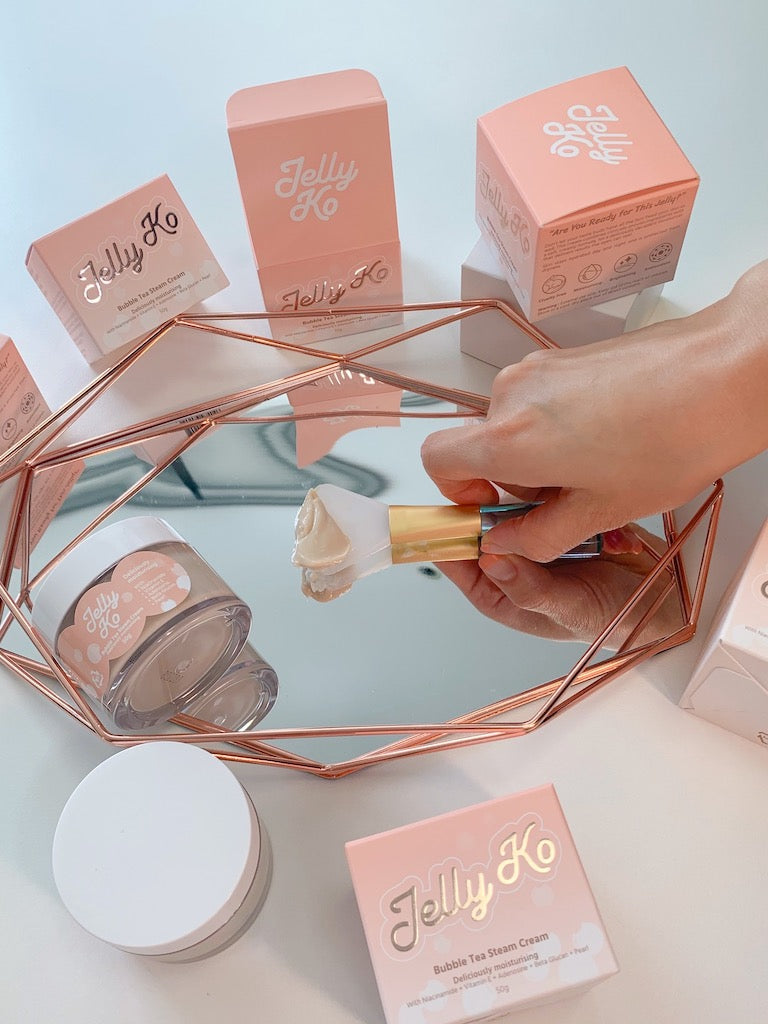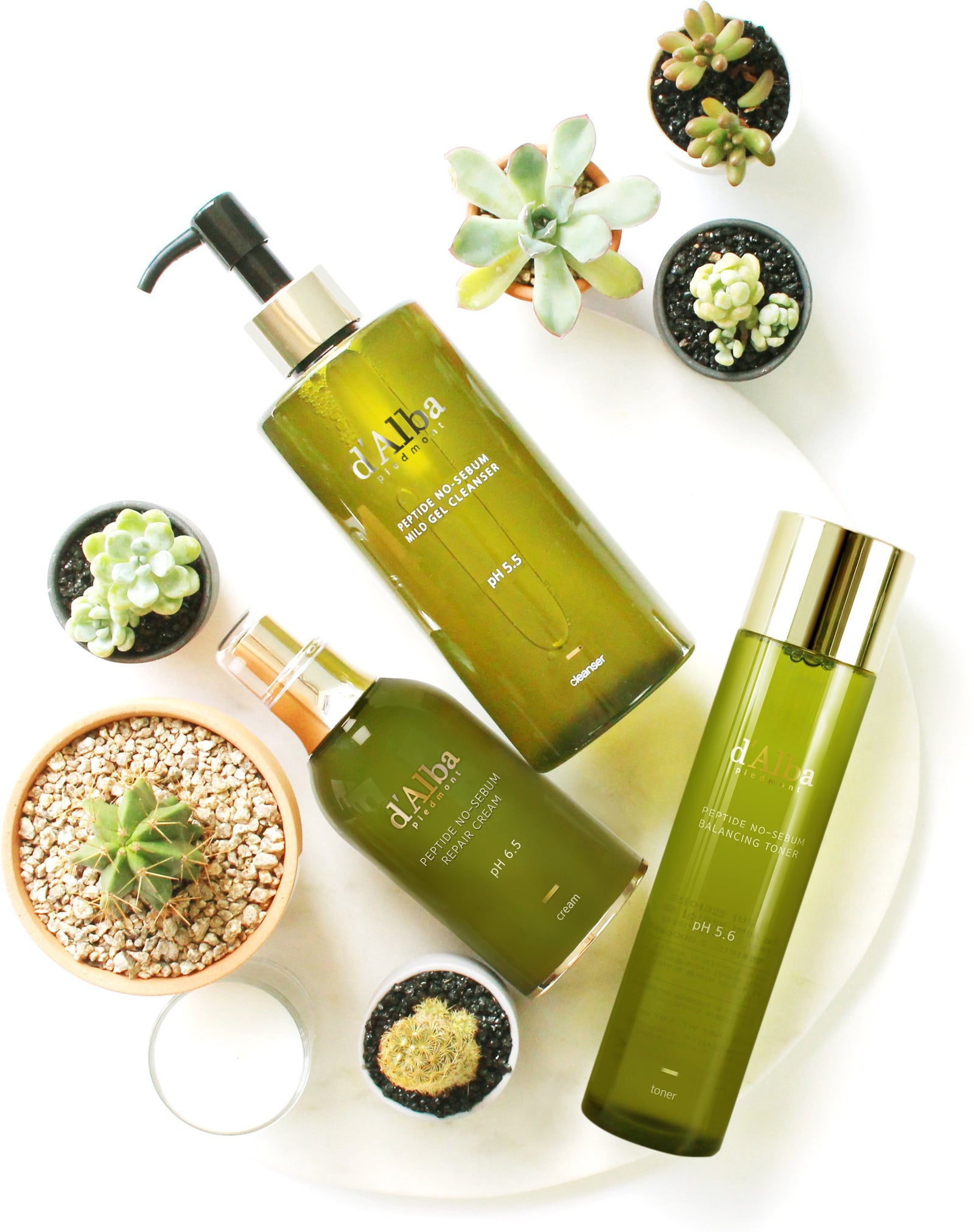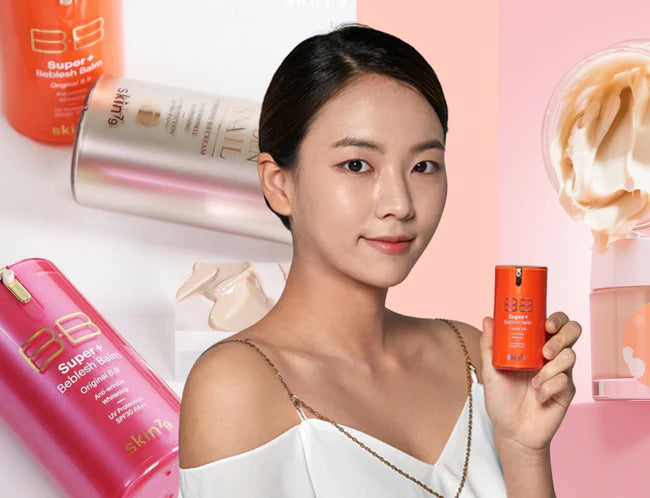The Korean Beauty Show 🎧 Your K-Beauty audio library starts here →
Menu
Dodgy K-Beauty Marketing Tactics
August 28, 2024

Dodgy K-Beauty Marketing Tactics
In 2024, there are more than a few dodgy K-Beauty marketing tactics doing the rounds. Thanks to the rise of social media there are more brands and advertisers trying to create a viral moment for their product, which leads to some questionable marketing tactics.
On episode 246, we're covering "those" glass skin ads, deceptive and misleading advertising claims, brands covertly infiltrating online communities and brands / retailers advertising sunscreens in countries where the products aren't legally compliant.
CONNECT WITH ME
EPISODE SUMMARY
Glass Skin Ads
On TikTok right now there are a few accounts that are creating "Glass Skin" ads to promote products using people who have impossibly smooth, poreless skin. In fact, it almost looks like they have poured olive oil on their faces; the skin is wet and oily looking. These accounts tend to team up with the same couple of K-Beauty brands, offering a variety of skin care that "promise" to create smooth, poreless, wet looking skin.
The reason this type of marketing is so egregious is because it preys on people’s insecurities about their skin texture and pores, which everyone has. It also promises an unrealistic ideal about what beauty products (and what the products in the ads in particular) can achieve for your skin.
In some ways, this messaging reminds me of the damaging diet culture of the early 2000s. If you were also around back then you might remember the waif-thin look with "thigh gap" that was the beauty standard. It was only ever attainable for a select group of people and not without a significant cost; namely to your health.
In the case of these glass skin ads, they also prey on people's insecurities by offering a solution that doesn't really exist. After all, it’s one thing to promise hydration and an increase in elasticity, which is possible with the right skin care products. It's another thing entirely to promise what these ads are suggesting, namely poreless, texture-less skin that is in a constant state of gloss and oiliness. And that is what makes these ads so predatory.
In a lot of cases, it's clear that the people doing the advertising would have smooth, perfect skin no matter what they use because it’s genetics and not the products they're using. Case in point - some even bring their mums and grandmas into their content, which makes it even more clear that the whole family has an impressive gene pool of perfect skin.
But in order to create the "wet" glass skin look, they are applying layer after layer of product, which temporarily creates this glassy look. The products they are promoting are often not even aimed at hydration meaning there is literally no way for it to create a wet look to the skin even if it were used in accordance with the instructions.

Brands Covertly Infiltrating Online Communities
Unfortunately, the practice of beauty brands covertly infiltrating online spaces to leave fake reviews and drum up hype for their products is not new. But what is new is the amount of Korean beauty brands using this tactic in 2024.
What happens is that the brands either direct their staff, influencers or paid members of the public to infiltrate online communities like Facebook groups and popular subreddits to name drop their products and leave reviews for them. I've even seen marketing managers of some brands do the same on Instagram.
This practice runs the gamut from fake reviews to undisclosed ads and is done with the intention of creating hype around the brand and its products.
This is actually a regulatory violation in many jurisdictions. Beauty brands have been caught out before and fined for engaging in these practices, including non-K-beauty brands like Sunday Riley in the US.
It has become so commonplace in the last few years but is very hard for lay people to recognise. In one popular Subreddit there is now a list of brands that have been banned from the community for engaging in these practices on such a widespread scale.
Due to the popularity and size of a lot of these Facebook groups and communities it is a genuine problem because are asking for reviews and recommendations, assuming that the people responding are genuine customers, not paid or incentivized reviewers or staff from the brands.

Deceptive and Unfair Marketing Claims
Beauty brands making deceptive and unfair marketing claims is not a new problem. Nor is it unique to the Korean beauty industry. This practice happens across the globe and is regulated in most jurisdictions to prevent brands from exaggerating or lying about their products. However, the issue in the Korean beauty example is that when Korean companies get pulled up by the regulators in Korea for making false or deceptive marketing claims, the reporting is all done in Korean. These cases don't always get reported on in English speaking news. That means that Korean brands who aren't as popular in Korea often "get away with it" because the news is never reported in a language their consumers speak.
One notable example is a huge K-Beauty brand on TikTok right now that was pulled up by the regulators for falsely advertising their ginseng serum as an anti-aging serum. The brand has received very little blowback internationally because most people don't know about it.
This kind of thing also happened during the Korean sunscreen scandal of 2020 - some brands that got caught in Korea barely made the news even though they were popular among foreigners because no one in Korea really knew who they were.

Advertising Korean Sunscreens in Countries Where the Products Don't Meet Local Regulations
Brands advertising, distributing and selling sunscreens in countries where the products don't meet local regulations has been an issue for Korean beauty brands in multiple jurisdictions, including the US and Australia, where sunscreen is regulated as a drug and therapeutic good consecutively.
The US Food and Drug Administration (the FDA) has begun cracking down on brands engaging in this practice, including placing obligations on third party retailers like Amazon to stop non-compliant sunscreen products being listed and sold on their platforms.
Unfortunately, despite having similar regulations in place, Australia's Therapeutic Goods Administration (the TGA) has proved extremely lax in actively prosecuting brands and retailers for engaging in the same practices in Australia.
In one extreme case, the Australian Instagram account of one popular K-Beauty brand (with an aloe-based sunscreen) admitted that the SPF 50+ product they were distributing by flaunting Australia’s cosmetic regulations did not actually equate to SPF 50+ by Australian standards but was more likely to be an SPF 30+. Both the practice of advertising this product and distributing it in Australia run contrary to Australia's cosmetic regulations. To date, the brand has not been publicly fined or prosecuted by the Australian TGA. Consumers remain mostly unaware that the product isn't compliant and are using a product labelled SPF 50 that the brand knows is not actually an SPF 50 by Australian standards.

Brands that engage in these practices demonstrate to consumers and regulators that they value profits over the health safety of their customers. In the Australian example, sunscreen products that aren't TGA listed are not subject to the same post-market testing as products that are, meaning consumers are left in the dark if there are any issues with the product. Consumer advocate groups like Choice Australia don't include these products in their investigations either.
Brands that sell products that don't meet local regulations are engaging in unethical behaviour that undermines existing regulatory frameworks. The practice is anti-competitive because it unfairly prejudices the brands that do spend the time and money putting their product through regulatory compliance. Ultimately, these kind of practices harm the industry as a whole and mean that much-needed reforms (like those needed in America's sunscreen industry) are not prioritized.
STYLE STORY - Your Go To for K-Beauty Since 2014
Shop Now
“This is actually a regulatory violation in many jurisdictions. Beauty brands have been caught out before and fined for engaging in these practices.”
Lauren Lee, K-Beauty Consultant



Leave a comment
Comments will be approved before showing up.